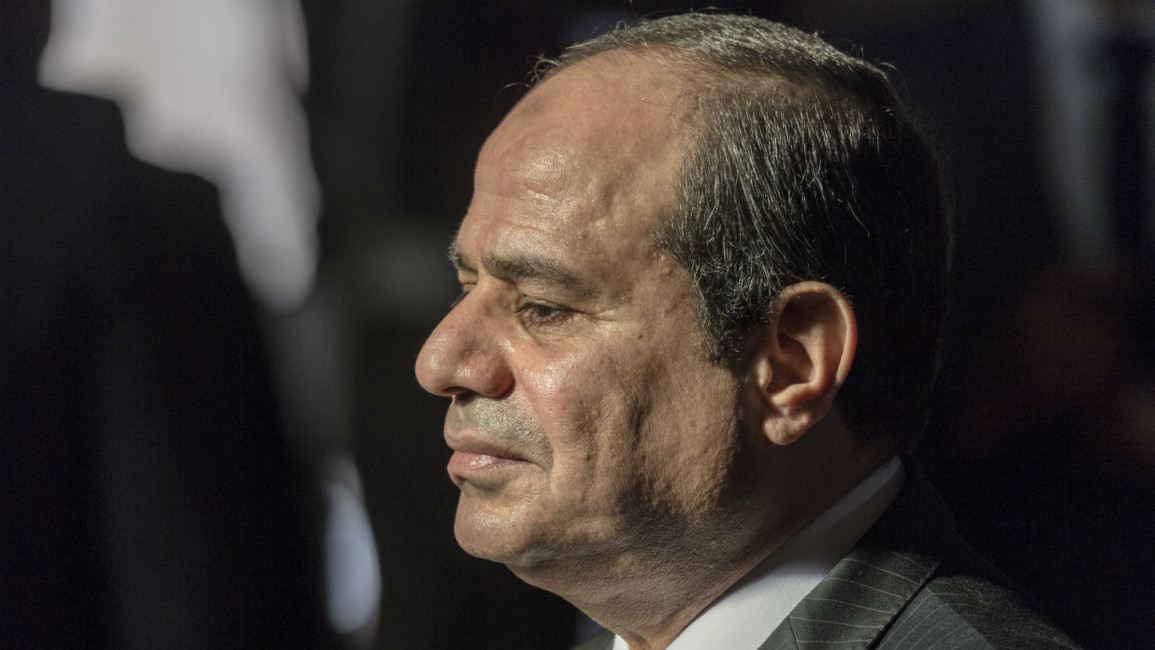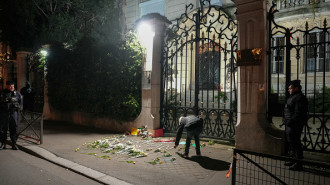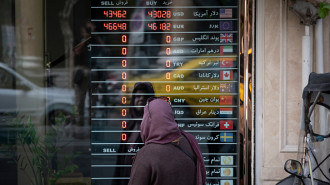Egypt president was 'fearful' of attacks against Israel during 2011 uprising
Egyptian President Abdel Fattah El-Sisi was afraid of Israel being attacked from the Sinai Peninsula during the 2011 revolution, he said Thursday.
Sisi, who was director of military intelligence at the time, said he was worried that militant groups operating in North Sinai would launch "terrorist operations" against Israel – with which Egypt has diplomatic relations since 1979 - adding that he conveyed these fears to then-defence minister Hussein Tantawi.
Speaking at an educational symposium for Egyptian armed forces, Sisi said any such operations would have caused a crisis with the Israelis, revealing that he was in coordination with Israel and decided to deploy more of his troops in North Sinai to bring the situation under control.
He claimed that the government did not use media propaganda as a tool for its war against militants in Sinai, and warned of a repetition of the 2011 protests "to prevent falling into a trap and sabotaging and destroying the state from within."
Sisi has often blamed Egypt’s economic woes on the 2011 revolution, and has clamped down on any kind of dissent or activism since his 2013 coup against democratically elected President Mohammed Morsi.
Between the hammer and the anvil': The forced eviction of Bedouin tribes in Egypt's North Sinai 👇 https://t.co/bAs3MFtxHe
— The New Arab (@The_NewArab) February 21, 2023
The Egyptian president claimed that the war on terror in Sinai has cost the state around one billion Egyptian pounds (over $32 million) per month for the past 90 months.
He said he was faced with two options when he became president, including putting a halt to all government work and focussing solely on media propaganda for the fight against terrorism.
"The second was to let soldiers fight armed groups in Sinai, while the [rest of the] country fights a second battle for development and stability."
An insurgency led by an offshoot of the Islamic State group has raged for years in the Sinai Peninsula’s north. It intensified after the 2013 military coup led by Sisi.
The conflict has largely taken place out of public view, with journalists and outside observers barred from the area.
While there is no official death toll, it is believed that hundreds of Egyptian soldiers, civilians and militants have died in the ongoing violence, while thousands of the Bedouin communities in the embattled region have been forced out of their homes.



